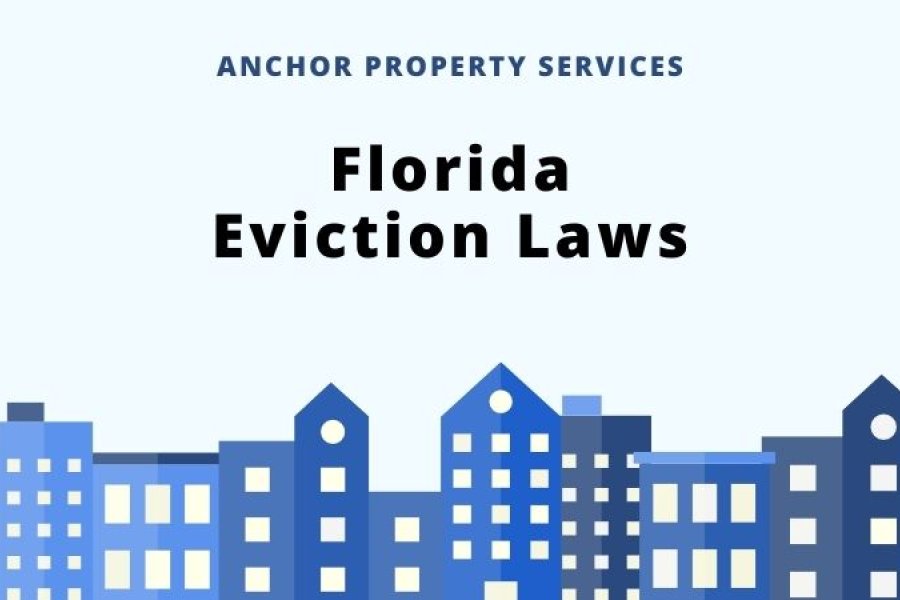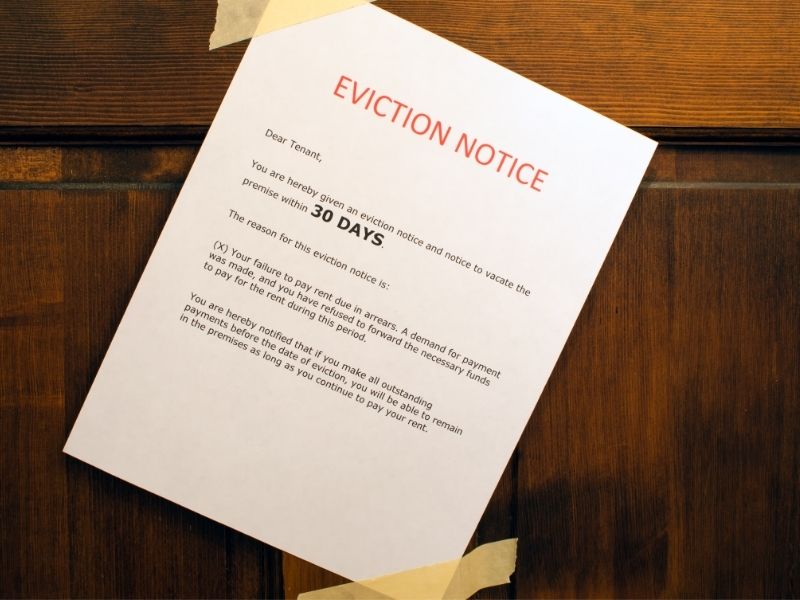
Once a tenant signs a lease in Florida, they agree to abide by all terms of the agreement. For example, they agree to pay rent on time, care for the unit, and adhere to all the established rules.
But no matter how thorough your tenant screening process may be, chances are, you’re bound to come across a difficult tenant at some point in your career as a property owner. When all else fails, you may be left with no choice but to evict the tenant.
Contained in the Florida landlord-tenant laws is the tenant eviction process. As a landlord, you must abide by it in order to successfully evict a tenant.
In this article, we will take you through the step-by-step process on how to evict a tenant in Florida.
Florida Eviction Laws: The Basics
1. Legal Reasons for Eviction

First, you must have a legal reason to initiate the eviction process against a tenant. Besides nonpayment of rent, other legal reasons to evict a tenant in Florida include:
• The tenant breaking the rules of the lease. For example, subletting without permission or making unauthorized alterations to the unit.
• Continuing to stay in the rental property after the lease term has ended.
• Manufacturing, distributing or using illegal substances while in the rental property.
• Engaging in activities that disrupt the peace and quiet of other tenants. For example, constantly throwing large, noisy parties.
• Causing negligent or careless property damage. For example, knocking huge holes in the wall or causing water damage.
2. Eviction Notice
Once you have a legal reason to evict a tenant, the next thing is to serve them an eviction notice. There are different notices depending on the violation a tenant has commited:
3-Day Notice to Pay Rent or Quit.
You must serve this notice to a tenant who fails to pay rent on time. As per Florida eviction statutes, rent is due on the 1st of the month, unless specified differently on the lease.
So, if a tenant doesn’t pay it by on the due date, the rent is considered overdue.
Once it's late and you want to evict them, you must serve them with a 3-Day Notice to Pay Rent or Quit. This notice gives the tenant 3 days to either pay the due rent or move out. If the tenant doesn’t comply, you can continue with the eviction.
7-Day Notice to Cure or Vacate.
You can also evict a tenant for failing to uphold the terms of the lease agreement.
Examples of violations under this category include failing to keep the unit clean, causing noise disruptions, or breaking any other lease rules.
If the tenant cures the violation within the 7 days, you must stop the eviction process. However, if the tenant doesn't resolve the issue, you can go ahead and file an eviction in court.
7-Day Unconditional Quit Notice.
This notice is for severe violations.
Examples of such violations include engaging in illegal activities or causing excessive property damage. In this case, the tenant won’t have an option to cure their violation; they must move out within the 7 days, or risk getting forcibly evicted. You can also use the tenant's security deposit to cover excessive damage costs.
7/15/30/60 Day Notice to Quit.

This is intended for tenants who have no written lease, or those whose leases have expired.
How much notice to provide depends on the type of lease you’ve signed.
- For month-to-month tenants, you must serve a 15-Day Notice to Quit.
- For week-to-week tenants, you must serve a 7-Day Notice to Quit.
- For quarter-to-quarter tenants, you must serve a 30-Day Notice to Quit.
- And for year-to-year tenants, you must give them a 60-Day Notice to Quit.
In all of these cases, if the tenant remains on the property after the notice period has expired, you may proceed with the eviction process.
3. Complaint & Summons
If the notice period expires and the tenant hasn’t moved out, the next step is to file a Complaint in court. In most Florida counties, this will cost you about $185 in filing fees. You may also need to pay an additional $10 for every Summon the court needs to issue.
The tenant can choose to contest the complaint. If they choose to do so, they must do so in writing and file their response with the court. The following are some of the arguments a tenant may use in fighting their eviction:
• Claiming you engaged in an illegal “self-help” eviction. Examples of self-help procedures include shutting off previously available utilities, changing the locks, or removing the tenant’s belongings. All these are illegal actions that will cause an eviction to fail.
• The eviction notice contained errors. An eviction notice must contain certain vital information for it to be deemed legally valid. For example, it must state the date it was written, the proper address, and the date the tenant has to move. If it doesn’t, then the tenant can use that as defense in court.
• The unit is no longer habitable. Landlords have an obligation to provide a unit that meets all safety, health and building codes. If the tenant notifies you of an issue that impacts the unit habitability and you don’t respond within a reasonable period, they may have a right to withhold rent. You cannot them try to evict them for nonpayment of rent.
• The eviction is retaliatory or based on discrimination.
4. Writ of Restitution
The court will then make a judgment based on each party’s arguments. If the court rules in your favor, you’ll need to request a writ of restitution. This is a legal document that allows the sheriff to kick the tenant out of the premises.
How Long Does an Eviction Take in Florida?
If the tenant chooses not to contest the eviction, it could be completed within 30 days. However, it can also take longer than this, although under 30 days is the average.
Disclaimer: This blog is in no way meant to be a substitute for professional legal advice. Laws change, and the information herein may become outdated. For professional advice on evicting a tenant in Florida, kindly get in touch with a qualified attorney or an experienced property management company.
